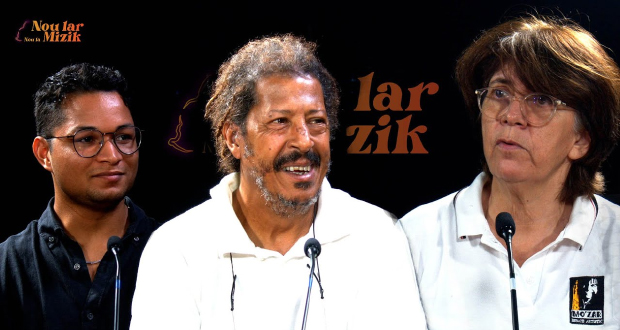Publicité
Indian politics : Look at the rise of this man
Par
Partager cet article
Indian politics : Look at the rise of this man


After the eagerly awaited victory of Modi, India is still in the limelight. The author talks about the prevalent illness which is the problem of caste.
Numerous writers and critics have hailed India as a land of contrasts and contradictions. The recent book coauthored by Amartya Sen and Jean Dreze titled ‘‘An Uncertain glory: India and its Contradictions” dwells on the huge social inequalities hitting India and rolling it towards the edge of a cliff. It is said about India that when something is true, the opposite is also true. One may talk about abject poverty the country is fraught in, while from another angle, India is the home of some of the world’s richest people. Indian politics too is full of contrasting accounts as the recent Lok Sabha elections have proved. Indian leadership may not necessarily come from a university campus. A Cambridge or Oxford graduate can become India’s Prime Minister as in the case of Manmohan Singh as much as he can be replaced by an erstwhile tea seller depending on the mood of the population.
But in this land of paradox, a still bigger surprise was in store for the Indian people and hit the headlines to the point that the London Telegraph newspaper judged it appropriate to report on something extraordinarily new. In the state of Bihar where the onetime supremo, Nitish Kumar, ruled, there was a flurry of excitement and rejoicing. Not because of the BJP’s landslide victory, but because someone from the rat catcher community was sworn in as Chief Minister of the 84 million Bihari population. Today, Jitan Ram Manjhi, 68, has become a powerful figure in Bihar and the pride of his community. Upon his elevation as Chief Minister, he received a call from none other than the newly appointed Prime Minister, Narendra Modi congratulating him on his achievement.
The rise of Manjhi belonging to the ‘‘Musahar’’ caste, classified officially by the state as the ‘‘mahadalit’’ – the lowest caste from the low ‘‘untouchable’’ Dalit segment – may indicate India’s gradual shift from caste politics after the elevation of Modi, himself from a backward caste, to the prime ministership, hitherto a rare phenomenon witnessed in India. In Bihar, this event is acclaimed as ‘‘historic’’ because it is the first time that someone from the ‘‘mahadalit’’ sub-caste has gained control of levers of state administration. On the other hand, at the same time, the ‘‘Modi magic’’ indeed gave practitioners and mascots of caste politics a rude shock. The priority in India now seems to focus more on the results’ delivery capability. It is the balance sheet of achievements that this new generation of Indians will scrutinize at the end of the day and decide whether to keep an incumbent state or central government or boot it out. Modi has carefully understood this compulsion when he keeps harping on ‘‘minimum government and maximum governance’’ and has promised to report back to the population at the end of his mandate. This is indeed a refreshing departure from the rut India is stuck in.
Likewise, Jitan Ram Manjhi’s rise to the helm of the Bihar state has more to do with his ability to deliver than caste consideration. The ‘‘Musahar’’ community is extremely poor and is even looked down upon by who else than the Dalits, themselves pitched at the lowest stratum of Indian society. The prejudice against the ‘‘Musahar’’ caste has been prevalent for centuries. Like for example, they are not allowed to visit temples nor procure drinking water from wells exclusively reserved for high castes. They are landless people, engaged in bonded labour, removing excrement with bare hands and hunting rats which they eat to stave off hunger.
During the food crisis in Bihar in 2008 aggravated with the ravages of crops and grain stocks by rats, Jitan Ram Manjhi who was then a tribal welfare minister in the Nitish Kumar government encouraged people to eat rats because he said “ rats and chicken have equal food values, not only in terms of protein, but in all areas of nutrition”.
For Jitan Ram Manjhi, an old hand in Bihar politics, he was able to emerge from the massively illiterate Mahadalit population with some degree of success. As a young man, Manjhi resolved that he would not end up all his life hunting rats and doing those dirty and repellent jobs reserved for the Mahadalit community. It was his passion for education and the encouragement provided by his father, himself a labourer, that was key to his success. He did not attend primary school because he had to fend for a livelihood working in the fields but tried to advance in studies by taking private tuition and sitting for examinations which he successfully completed. The bulk of Mahadalits and Dalits are discouraged from attending schools by the higher castes. A self-taught man who rose to political stardom, Manjhi gained admission in a High School in Gaya. His efforts paid off when he graduated in history in 1967. He then secured a job of clerk with the Bihar Posts and Telegraph Department at a time when government jobs, even a peon job, were denied to this caste. Manjhi’s success was big achievement. He became a household name in Bihar so much so that in 1980, he stood for election and won on a Congress ticket. Having shifted to the Janata Dal (U) which used to have a strong grip in Bihar, Manjhi has been returned six times for the Assembly elections. Because of Manjhi, the Mahadalit community serves as a vote bank to the Janata Dal (U) which has introduced several schemes to improve the social well being of this highly marginalized and under-privileged community.
Manjhi as Chief Minister looms a ray of hope to the millions of Mahadalits who are crushed under the burden of caste discrimination. Expectation runs high that the prejudice and inhuman treatment they have suffered for centuries may be rolled back and lift them on to a higher pedestal in society. Already, electricity connection to far flung predominantly Mahadalit villages deprived of basic infrastructural necessities is a matter of great excitement. With the knocking down of caste barriers in the choice of its rulers, India signals that it is turning over to a new leaf.
Publicité
Les plus récents






